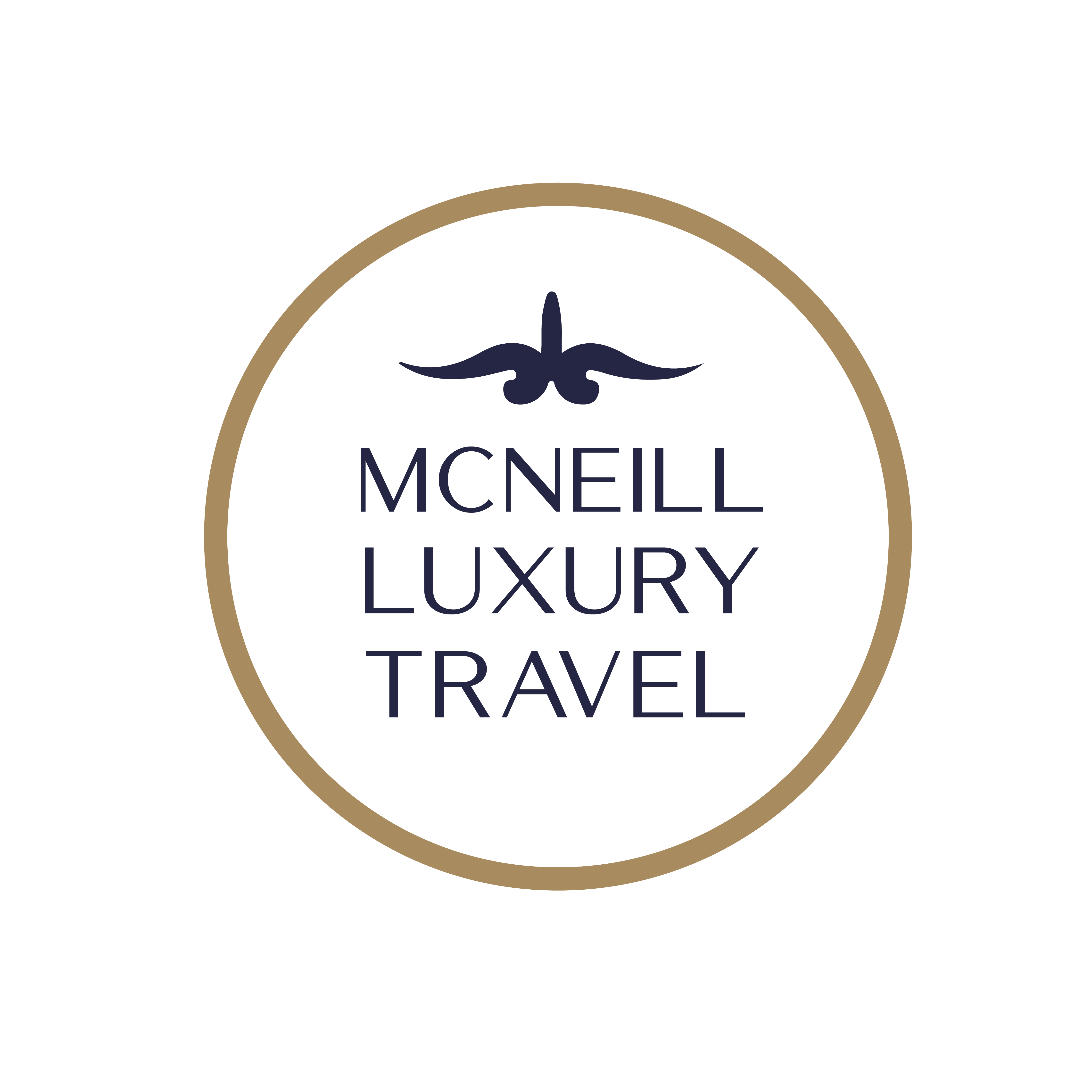A competent travel advisor can be your greatest asset when you’re planning a trip. I’m talking about a certified travel professional who can do a lot more than book flights and hotel rooms. You want someone who can carefully orchestrate your perfect vacation with expertise, a personalized touch, and stay within your budget.
Now, here’s the $64,000 question: How do you wade through hundreds of profiles online to find the best travel advisor for you?
The answer is more complex than you’d expect!
Understand the Difference Between an Online Travel Agency, Travel Agent and Travel Advisor
The first step to choosing a great travel advisor for your trip is understanding the difference between a travel advisor and a travel agent. They are different service providers in the travel industry. Without a clear grasp of what each does, you’ll very likely get off on the wrong foot. Trust me that can be a source of a lot of headaches down the line!
To avoid that, here are some distinctions between them. Keep in mind that these are explanations rather than hard and fast definitions:
Online travel agencies (OTAs) became very popular with the expansion of the Internet in the mid-90s and early 2000s. You know them more commonly as Orbitz, Travelocity, Hotwire, etc. What you may not know is that these are wholesale call centers.
They take unsold travel inventory and sell them directly to the public at a discount. In essence, they serve as an intermediary between travel suppliers (airlines, hotels, cruises) and the traveling public; and often the focus is on the price rather than the quality of the travel service.
Moreover, there’s no personalized service, which means you will get a different person each time you reach out to them. It will be hard to get a hold of someone to help you if there are issues while traveling or when you get back.
This is the polar opposite of what I advocate for. Through my travel support services, all my clients get personalized assistance and dedicated support during their trips. Learn why this is a big plus for the next vacation you take.

Travel agents are well known from the 80s and very early 90s because the only way to book an airline ticket back then was through a travel agent. You could not book directly with the airline or online because the Internet didn’t exist just yet. As a result, travel agents have long been associated with booking flights.
They can book other services such as hotels, cruises, and vacation packages, of course, but they’ve never been able to shed the association with the mechanics of booking travel services. Travel agents don’t specialize in any particular travel niche or region of the world. In that sense, they can book anything if you know exactly what you want.
You’ll have to look elsewhere if you need concierge-level travel services or if you feel competent enough to DIY your trip.
Travel advisors are a different breed of professionals altogether. Without fail, they are highly trained, often certified with various industry organizations, and possess unmatched expertise based on years of working in the industry. Advisors are sometimes referred to as consultants or even “Destination Specialists,” and almost all are affiliated with a host agency and/or consortia.
Quite a few of them serve niche markets and cater to specific types of clientele, e.g., weddings & honeymoons, adventure, Safari, families with young children, etc. This level of specialization allows them to focus 100% on creating immersive travel experiences that go above and beyond to ensure client satisfaction.
Two of the biggest differences between travel advisors and travel agents are their little black book of contacts and level of service. Travel advisors have direct contact with key partners in the travel industry, such as airlines, hotels, cruise lines, and tour operators, and this sets them apart from the rest.
They also offer custom itineraries, personalized service, and advice on travel-specific issues such as visa requirements, travel insurance, and tips on local etiquette. A travel advisor gives you the information you need while saving one of your most valuable resources—time!
Especially if you work with a Condé Nast Traveler Top Travel Specialist, you are in for a treat!
Create a Shortlist of Potential Travel Advisors

This is easily the most challenging part of this whole process, as there are countless ways to go about finding potential travel advisors for your upcoming trip.
For example, most travelers use search engines like Google to find travel advisors.
You should start by narrowing your search down to the precise keywords that resonate with your trip theme or travel interests. For example, “food tours in Rome travel advisor,” “honeymoon in Turks and Caicos travel advisor,” “Ireland travel advisor, “ or “luxury cruise specialist.” Then type in your search term, press Enter and Google will populate your tab with information about travel and hopefully some travel advisors.
Though the simplest and most straightforward option for finding travel advisors, it can be a hit or miss. This is because your search results might be too broad, or worse, populated with online travel agencies that will do little to offer the personalized experience you are looking for.
Alternatively, I recommend beginning your search close to home. Start by asking friends, family, and work colleagues to recommend a good travel advisor. Likely, someone has recently returned from vacation with great experiences and stories to tell. If they worked with a travel consultant and were pleased with the experience, that’s a great place to start.
What to do if your close acquaintances and family members don’t have any good recommendations?
In this case, you have a look through authoritative travel websites for recommendations on top travel advisors for your destination. A perfect example is Condé Nast Traveler, which publishes an annual list of top travel specialists (including Yours Truly!). You can filter by a variety of specializations, including culinary tours, cruises, beach vacations, and a whole lot more.
Another option is to look on social media like Facebook, YouTube, Instagram, and LinkedIn for travel advisors. You can check out their posts and watch their videos to learn more about their personalities and services. Most social media profiles will link back to their websites, where you can glean more detailed information about the travel advisor.
More Info: Walkthroughs of Luxury Hotels From All Over The World (YouTube)
Depending on what kind of traveler you are, one medium might prove to be better than the other. For example, travelers in their mid-40s to mid-60s (this is the demographic I work well with) might have very little success looking for their ideal travel advisor on Instagram; indeed, Facebook might be a better platform for this group.
Remember, the goal of this process is not to contact every travel advisor you come across. Nor is it to choose the first travel advisor you find on the Internet.
All these options should lead you back to a travel advisor’s website. There you can read all about them, what services they offer, what destinations they specialize in, and more about their personalities. What you are looking to do is create a shortlist of up to 5 candidates that best fit your travel needs and style. These are the ones you will contact.
Book a Consultation Call

Now that you have your shortlist, it’s time to book a consultation call. This will often be a virtual meeting via phone or Zoom unless the travel advisor is located nearby, then you can opt for a face-to-face meeting. If you’re finding it difficult to reach a travel advisor (i.e., you can’t find their contact info or they take too long to get back to you), this should be a warning sign.
A good travel advisor will offer a simple and straightforward way of getting in touch with them. Their contact information (email or phone number) or contact form should be readily available on their website.
Once you have your appointment booked, it’s time to prepare for the meeting. Landing the best travel advisor for you is all about asking the right questions.
- What services do they offer? What are some examples of trips that they’ve planned in the past? The travel advisor should have a list of travel services they can offer you and be able to explain what is included in each service.
- What’s their planning fee? Nowadays, this is the most common way travel advisors charge for their services. Keep in mind that the more experienced or specialized an advisor is, the higher their booking fee will likely be. Creating a perfect vacation takes time, and the advisor will use their worldwide connections and expertise to craft the best options for you. The good thing is, with well-connected travel advisors, whatever fee you pay will very likely come back to you in the form of special perks and surprises along the way that you wouldn’t be able to secure yourself.
- Why did they choose a career in travel? What were their most recent travel experiences? You want to work with someone who actually travels and is genuinely passionate about it. You don’t want to work with anyone who’s lost the zest for travel and is biding their time until retirement.
- What are their professional accreditations and certifications? Most professional travel advisors are at the very least affiliated with a host agency such as Travel Edge and global travel networks such as Virtuoso. These organizations provide oversight to their travel advisors as well as offer access to industry resources, tools, and support they need to deliver a top-notch travel experience to their clients.
Speaking of top-notch travel experience, here’s a travel service that’s proving to be a great investment for many of my clients.
Here are a few extra tips for your meeting with the travel advisor:

- Pay close attention to the way they respond to your queries. Do they actually answer your questions? Are they knowledgeable about your destination? Are they excited about your trip?
Do they seem like somebody you would like to work with? You need to feel like you can easily get along with your travel advisor as you’ll be working closely with them. - Be upfront with the travel advisor and communicate the purpose of the trip, your budget and your travel style. Planning a milestone birthday, a trip to Antarctica, or a multi-generational family trip to Ireland are all different types of trips, so be specific about what you hope to achieve on your trip. Sharing the budget will help determine if their booking fee plus all travel-related costs fit your predetermined budget.
- And finally, how you travel is just as important as where you travel. Do you like leisurely, slow trips or ones packed with sightseeing and attractions? Or perhaps you’re a foodie or wellness enthusiast; either way, knowing your travel style will give your travel advisor insight into who you are as a potential client.
- Make sure you have the travel advisor’s best contact information so you can easily reach him/her with any questions or concerns that may arise after the call.
More info: What Level of Travel Support is Suitable for You?
Review and Make Final Decision

At this point, you should have a good idea of which travel advisor can meet your needs.
To help you along, here are some common attributes of a good travel advisor:
- A good travel consultant will ask about your interests before pitching you any itinerary ideas. They will put in the effort to listen and try to understand your travel style.
- They will have experience in your type of travel. It is best to work with a travel advisor who has already planned something similar to what you want to do.
- They are just as excited about your trip as you are. This will come as no surprise, but you can tell a lot about a person by the tone of their voice. If your travel advisor candidates aren’t passionate about your trip, keep looking.
- Did they follow up with you after your consultation call? Many advisors will send a recap of the conversation and some additional information to consider. At the very least, a set of next steps is also helpful to you.
All in all, you need to feel confident in your travel advisor’s ability to make your trip a reality and a success. You should also feel comfortable working with them because they will be your primary collaborator on the trip. If you don’t feel a sense of trust, then that is also a good sign that the candidate is not a good fit for you.
Assuming you haven’t already, it’s a good time to share your findings with your travel companions. This ensures that everyone is in agreement and that you’re all on the same page about the final choice.
Once you are settled on your decision, it’s time to schedule a second meeting. This is the time to ask any follow-up questions you might have, as well as discuss the logistics and determine a general travel plan.
Here are some examples of travel logistics you’ll need to discuss.
I would be remiss if I didn’t mention that you need to watch out for potential scams.
Travel scams are just as prevalent as ever, and as you look for a travel advisor, you have to be careful.
- Always double-check that you are getting contact information directly from the business website rather than using the results from a search engine.
- When you’re shopping for travel insurance, make sure you’re buying a policy from a licensed company.
- If it sounds too good to be true, it probably is. Phony travel advisors know how to present mouth-watering offers to unsuspecting travelers.
- Any legitimate travel advisor should have some form of an online presence as well as real reviews.
***
Why You Need a Travel Advisor These Days
Did you know that the average one-week European or Caribbean vacation involves juggling at least 15 separate bookings? It’s no wonder that for many, travel can be one of life’s most daunting and stressful investments. Yes, travel demands your time, finances, mental resilience, and physical stamina. But planning it all out, from bookings to logistics, is just the beginning.
Here’s the kicker: even with meticulous planning, unforeseen delays or mishaps can still throw a wrench into your trip. That’s where the real value of working with a personal travel advisor shines – especially one who offers support during your journey (and not all do!).
My travel support packages are tailored to provide the assistance you need, whether it’s having someone on standby to answer questions during business hours, offering around-the-clock support in emergencies, or even arranging for a personal travel concierge at your destination. I’m here to ensure your vacation is not just luxurious but also stress-free.
You’re welcome to review the different support packages available or click here to get in touch with me directly. I’d love to hear from you!

